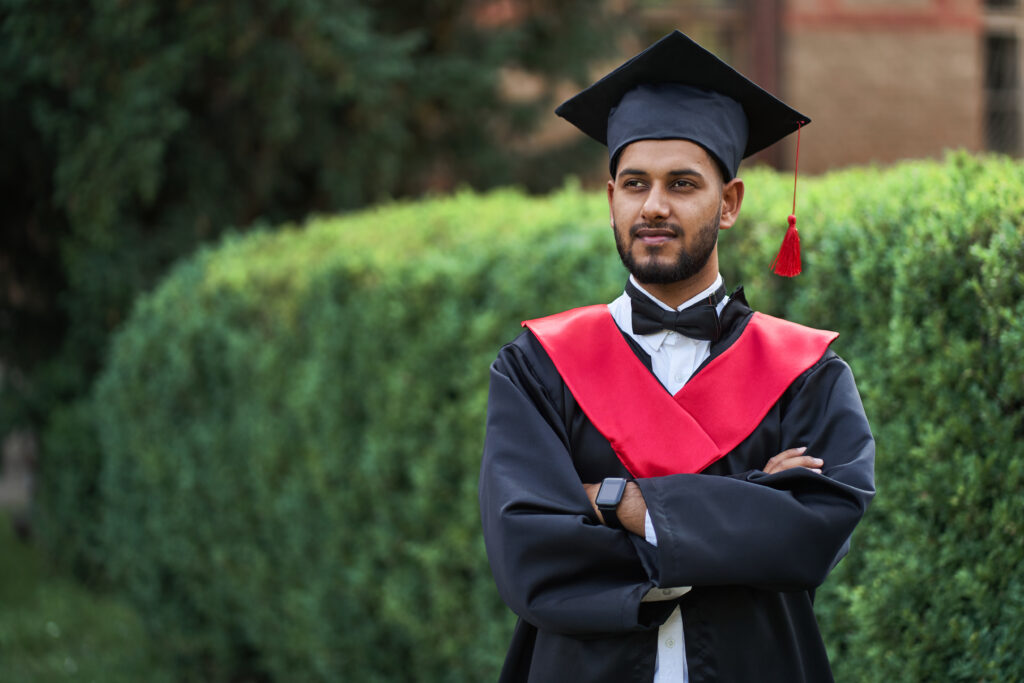The B.Ed. programme shall be for duration of two academic years consisting of four semesters. Each semester is spread over for a period of 100 working days (36 hours in a week – 5 or 6 days in a week), excluding the period of examination and admission.
Bachelor of Arts in English (B.A) programme can be attained within three years of study. This programme typically focuses on imparting comprehensive knowledge and competency in the linguistic skills (LSRW) and communication skills in the English language. The degree programme helps learners as a basic programme, with which the learners may either pursue higher studies or seek employment.

| S.No | Theory Courses | Credits | Marks | Total Marks | |
| External | Internal | ||||
| 1 | Educational Psychology | 5 | 70 | 30 | 100 |
| 2 | Education in Contemporary India | 5 | 70 | 30 | 100 |
| 3 | Learning and Teaching | 5 | 70 | 30 | 100 |
| 4 | Language Across the Curriculum | 5 | 70 | 30 | 100 |
| 5 | Pedagogy of a School Subject: Part – I | 5 | 70 | 30 | 100 |
| Total | 25 | 350 | 150 | 500 | |
| S.No | Theory Courses | Credits | Marks | Total Marks | |
| External | Internal | ||||
| 1 | Understanding Disciplines and Subjects | 5 | 70 | 30 | 100 |
| 2 | Gender, School and Society | 5 | 70 | 30 | 100 |
| 3 | Environmental Education | 5 | 70 | 30 | 100 |
| 4 | Yoga, Health and Physical Education | 5 | 70 | 30 | 100 |
| 5 | Pedagogy of a School Subject: Part -II | 5 | 70 | 30 | 100 |
|
Total |
25 | 350 | 150 | 500 | |
School Internship
Record Verification & Teaching Learning Assessment – External Evaluation
| S.No | Practicum Components
& Online Course |
Credits | Marks |
| 1 | Observation Record – Level – I & II | 1 | 20 |
| 2 | Micro Teaching Record – Level – I & II | 1 | 20 |
| 3 | Demonstration Record – Level – I & II | 1 | 20 |
| 4 | Lesson Plan Record – Level – I & II | 4 | 80 |
| 5 | Instructional Materials Record – Level – I & II | 1 | 20 |
| 6 | Test and Measurement Record – Level -I & II | 1 | 20 |
| 7 | Case Study Record | 1 | 20 |
| 8 | Psychology Practical Record | 2 | 40 |
| 9 | Environmental Education Record | 1 | 20 |
| 10 | Students Portfolios and Reflective Journals | 1 | 20 |
| 11 | EPC-Record | ||
| 1. Reading and Reflecting on Texts | 1 | 20 | |
| 2. Drama and Art in Education | 1 | 20 | |
| 3. Critical Understanding of ICT | 1 | 20 | |
| 4. Understanding the Self | 1 | 20 | |
| 12 | Teaching Competency Assessment – Level – I & II | 6 | 120 |
| 13 | Online Course-Swayam (any one course related
to Pedagogy/Education/Basic Discipline Skills) |
1 | 20 |
| Total | 25 | 500 |
| S.No | Theory Courses | Credits | Marks | Total |
| External | Internal | Marks | |||
| 1 | Assessment for Learning | 5 | 70 | 30 | 100 |
| 2 | Knowledge and Curriculum | 5 | 70 | 30 | 100 |
| 3 | Creating an Inclusive School | 5 | 70 | 30 | 100 |
| 4 | School Management and
Administration |
5 | 70 | 30 | 100 |
| 5 | Electives (Any One) |
5 |
70 |
30 |
100 |
| 1. Values and Peace Education | |||||
| 2. Human Rights Education | |||||
| 3. Community Engagement through Work Education | |||||
| 4. Disaster Management | |||||
| 5. Special Education/
Inclusive Education 6. Life Skills 7. NCC |
|||||
| Total | 25 | 350 | 150 | 500 |

| PO 1 | Understand nature of education and pedagogic processes through enriched experiences |
| PO 2 | Contribute to fill up the gap between theory and practice by dovetailing both appropriately. |
| PO 3 | Interactive processes wherein group reflection, critical thinking and Meaning making will be encouraged |
| PO 4 | Understand various educational issues in the context of diverse socio cultural & Multilingual Indian Society |
| PO 5 | Enable them to face the challenging of social, political and technological issues. |
| PO 6 | Understand the nature, purpose, influencing factors and problems of secondary education in contemporary issues |
| PO 7 | Describe teaching learning process in the classroom and various factors that influence it. |
| PO 8 | understands various level learners, their needs, and interest and peculiar problems and motivate them for learning. |
| PO 9 | Plan and organize classroom through learners centred techniques of instruction for inclusive education & effective whole classroom instruction. |
| PO 10 | Conduct Pedagogical content analysis in subject areas and use it for facilitating learning in the classroom. |
| PO 11 | Effective use and utilization of Information Communication Technology resources, on-line as well as off line for day-to-day classroom teaching, remedial instruction and for providing challenging learning to the precious |
| Ps 1 | Should be able to clearly understand the concepts and applications in the field of Communication/networking, signal processing, embedded systems and semiconductor technology |
| Ps 2 | Should be able to associate the learning from the courses related to Microelectronics, Signal processing, Microcomputers, Embedded and Communication Systems to arrive at solutions to real world problems. |
| Ps 3 | Should have the capability to comprehend the technological advancements in the usage of modern design tools to analyze and design subsystems/processes for a variety of applications. |
| Ps 4 | Should posses the skills to communicate in both oral and written forms, the work already done and the future plans with necessary road maps, demonstrating the practice of professional ethics and the concerns for societal and environmental wellbeing. |
| PO 1 | Understand children of different ages by interacting & observing them in diversified social, economic and cultural context rather than through an exclusive focus on psychological theories of child development. |
| PO 2 | Study of childhood, child development and adolescence. |
| PO 3 | Understand learning as divergent process. |
| PO 4 | Make aware about the importance of healthy liking and preventing disease. |
| PO 5 | Introduce psychological traits of learners. |
| PO 6 | Become health aware & sensitize about mental and physical health. |
